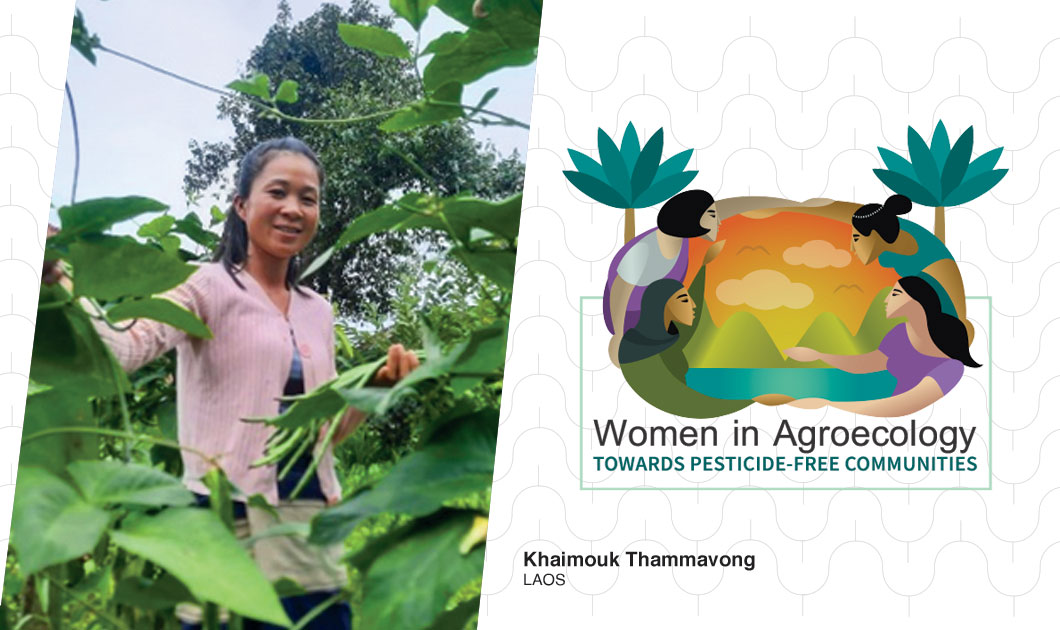In Khungvieng Village in Laos, a 29-year-old Lao Luom woman, Ms. Khaimouk Thammavong, has embarked on a remarkable journey in agroecology. For three years, she has been practicing integrated farming. She cultivates a modest 0.2 hectares of ancestral land, where she practices a sustainable approach that nurtures both the land and the community.
She boldly decided to avoid chemical pesticides after witnessing their detrimental effects. A pivotal moment was when her cousin suffered from severe pesticide poisoning and experienced chronic headaches, dizziness, and vomiting. She became determined to protect her health and the environment. There, her journey towards agroecology began.
After she got married and integrated with her husband’s family, who were members of an organic group, Khaimouk learned the techniques of organic farming and attended workshops organized by the Sustainable Agriculture & Environment Development Association (SAEDA). With this newfound knowledge and determination, she tackled the challenges of transitioning to agroecology which include seed conservation and pest management.
Khaimouk emphasizes biodiversity and soil fertility in her agroecological practices. She eschews chemical pesticides in favour of bio-pesticides and diligently cares for her farm to prevent pests and diseases. Additionally, she integrates livestock and utilizes their dung to create organic fertilizer.
The benefits of Khaimouk’s practices extend beyond her farm. Certified organic produce yields higher prices at the market, which allowed her to save costs and improve her livelihood. She typically earns USD 2,000 to 3,000 yearly for selling produce twice a week. Furthermore, her family’s health has improved. They are now free from the illnesses associated with chemical farming.
Khaimouk takes pride in her farm’s biodiversity, which has been nurtured over years of organic farming. Traditional crop varieties such as coriander, garlic, and maize thrive alongside commercial crops and are resilient to changing weather patterns.
As a woman, Khaimouk finds empowerment in agroecology. It challenges gender inequalities. It allows her to participate fully in decision-making and control her life. Moreover, agroecology fosters community involvement which strengthens local food systems and preserves traditional knowledge.
Khaimouk emphasizes the importance of education, awareness, and collaboration in sustaining and further developing agroecological farming. She calls for fostering partnerships between farmers and scientists and promoting sustainable food systems.###
Women In Agroecology: Towards Pesticide-Free Communities is a continuing storytelling initiative of PAN Asia Pacific and its partners to document stories of rural women who are survivors of pesticide poisoning and/or making the transition to agroecology.
Our contributing partners for the second installation: Shikkha Shastha Unnayan Karzakram (SHISUK), Bangladesh; Serikat Perempuan Indonesia (SERUNI); Sustainable Agriculture and Environment Development Association (SAEDA), Laos; and Research Centre for Gender, Family and Environment in Development (CGFED), Vietnam








Discussion about this post